To install a charger for an electric car, follow these steps:
1. Select and purchase an appropriate charger for your vehicle.
2. Hire a licensed electrician to install the charger at your desired location.
Electric cars are becoming increasingly popular due to their environmental benefits and cost savings. However, to ensure they remain practical and convenient, it is essential to have a charger installed at your home or workplace.
Installing a charger for an electric car requires careful consideration and adherence to specific steps. We will provide you with a concise guide on how to install a charger for your electric vehicle, enabling you to charge your car efficiently and conveniently. (70 words)
Planning For Electric Car Charger Installation
Installing a charger for your electric car is an important step to ensure convenient and efficient charging. However, before diving into the installation process, there are several factors to consider and steps to take so you can plan for a successful installation. In this article, we will guide you through the key aspects to keep in mind before embarking on your electric car charger installation journey.
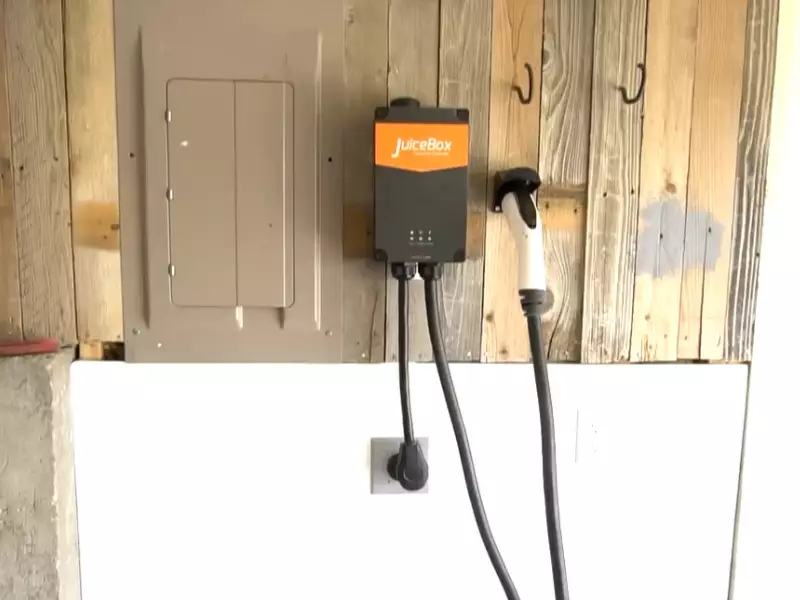
Factors to Consider Before Installation
Before proceeding with the installation, it’s crucial to carefully evaluate and consider certain factors that can impact the overall process and effectiveness of your electric car charger. Being aware of these factors will help you make informed decisions and ensure a smooth installation experience.
- Make sure you have adequate space for the charger installation. Assess your available space and determine if you need any adjustments or modifications to accommodate the charger.
- Evaluate the electrical capacity of your property. Consult with a licensed electrician to determine if your electrical system can handle the additional load required for charging an electric car. Upgrading your electrical panel may be necessary.
- Consider your future charging needs. Will you be adding more electric vehicles to your household? Anticipating future demand will help you choose the right charger that can meet your long-term requirements.
- Check for local regulations and permits. Research and comply with any local zoning laws, homeowner association guidelines, or permitting requirements related to charger installations.
Understanding Electric Car Charger Compatibility
One of the critical aspects to consider when planning for an electric car charger installation is ensuring compatibility with your vehicle. Electric car chargers come in various types and have different charging capabilities. It’s crucial to understand your vehicle’s specifications and charging capabilities to make an informed decision.
Here are some key considerations regarding charger compatibility:
- Plug Type: Determine the appropriate plug type for your electric car model. Some common plug types include J1772, CHAdeMO, and CCS.
- Power Output: Check the power output your vehicle can handle and select a charger accordingly. This will allow you to charge your vehicle at the optimal power level.
- Smart Charging Features: Consider chargers that offer smart charging features, such as scheduling and remote monitoring. These functionalities enhance convenience and allow for better management of your charging sessions.
Assessing Power Supply and Infrastructure
Assessing your power supply and infrastructure is a crucial step in planning your electric car charger installation. Understanding your power supply capabilities will help you determine if any upgrades or modifications are necessary.
Consider the following when assessing power supply:
- Electrical Panel Capacity: Evaluate your electrical panel’s capacity to ensure it can handle the additional load of the charger. An electrician can help determine if an electrical panel upgrade is needed.
- Wiring: Check the condition and capacity of your existing wiring. Upgrading the wiring may be necessary to support the charger’s power requirements.
- Power Output: Evaluate the availability of sufficient power supply to achieve optimal charging speeds.
Determining the Optimal Charger Location
The location of your electric car charger plays a vital role in the convenience and efficiency of the charging process. When determining the optimal charger location, consider the following:
- Proximity to Parking Area: Choose a location that is accessible and conveniently located near your parking area. This will reduce the need for long charging cables and make the charging process more efficient.
- Structural Considerations: Ensure that the charger can be safely mounted on a wall or post. If needed, consult with a professional to evaluate the structural integrity of the chosen location.
- Weather Protection: Consider weather conditions and choose a location that provides protection for the charger against extreme temperatures, rain, or direct sunlight.
By considering these factors and understanding the compatibility requirements, power supply assessment, and optimal location selection, you can effectively plan for your electric car charger installation. Taking the time to plan and make informed decisions will result in a hassle-free installation process and an optimized charging experience for your electric vehicle.
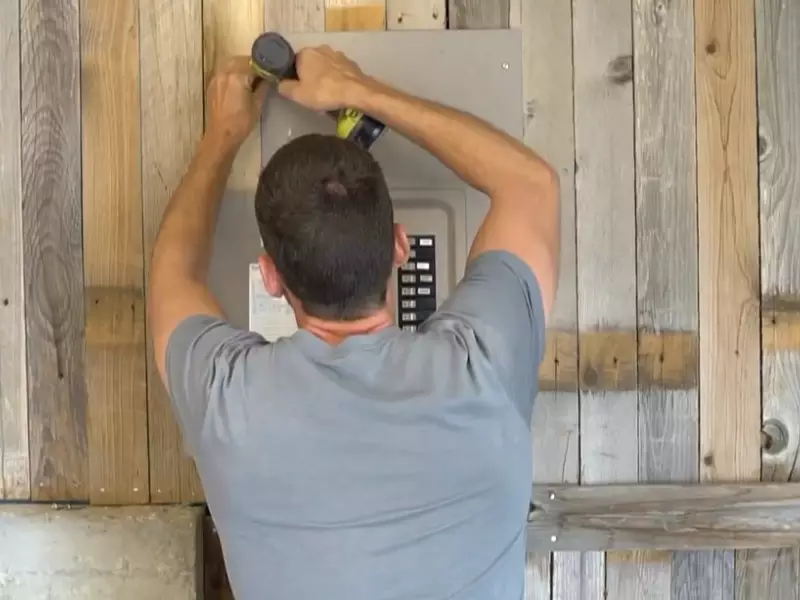
Choosing The Right Electric Car Charger
When it comes to electric cars, one of the key factors to consider is installing a suitable electric car charger. With various options available in the market, choosing the right charger for your electric car can be a daunting task. In this article, we will guide you through the process of selecting the perfect electric car charger by discussing the different types of chargers and evaluating their features and specifications.
Types of Electric Car Chargers
Electric car chargers come in a variety of types, catering to different charging needs. Understanding the distinctions between these charger types will help you make an informed decision. The three main types of chargers are Level 1 chargers, Level 2 chargers, and DC fast chargers.
Level 1 Chargers
Level 1 chargers, also known as trickle chargers, are the most basic and commonly found chargers. They operate using a standard household electrical outlet, typically providing charging speeds of around 4-5 miles of range per hour. Level 1 chargers are portable and convenient for daily charging but may not be ideal for long-distance travel due to their slow charging speed.
Level 2 Chargers
Level 2 chargers offer a significant improvement in charging speed compared to Level 1 chargers. These chargers require a dedicated 240-volt electrical circuit and are commonly installed at homes or public charging stations. Level 2 chargers can provide charging speeds of up to 25-30 miles of range per hour, allowing for quicker recharges and enabling longer trips with electric vehicles.
DC Fast Chargers
DC fast chargers, also known as Level 3 chargers, are the fastest chargers available for electric cars. These chargers are typically found at public charging stations and are capable of delivering a high-power DC charge directly to the vehicle’s battery. DC fast chargers can provide charging speeds of around 80% battery capacity in under 30 minutes, making them ideal for long journeys or when a quick top-up is needed.
Evaluating Charger Features and Specifications
When selecting an electric car charger, it is important to consider various features and specifications that can enhance the charging experience. The following factors should be evaluated:
Charging Speed and Power Output
Consider the charger’s power output and charging speed. Higher power output will result in faster charging times. It is essential to choose a charger that matches the charging capabilities of your electric car, as some vehicles can handle higher charging speeds than others.
Connector Types and Compatibility
Ensure the charger’s connector type is compatible with your electric car’s charging port. Common connector types include CHAdeMO, CCS, and Tesla Supercharger. Choosing a charger with the correct connector type is crucial to avoid compatibility issues and ensure a hassle-free charging experience.
Additional Features and Smart Charging Options
Some chargers offer additional features and smart charging options that can enhance convenience and efficiency. These may include features like Wi-Fi connectivity, smartphone apps for monitoring and scheduling charging sessions, and load balancing to optimize charging during peak hours.
In conclusion, choosing the right electric car charger involves understanding the different charger types and evaluating their features and specifications. By considering factors such as charging speed, power output, connector compatibility, and additional smart charging options, you can ensure a smooth and efficient charging experience for your electric vehicle.
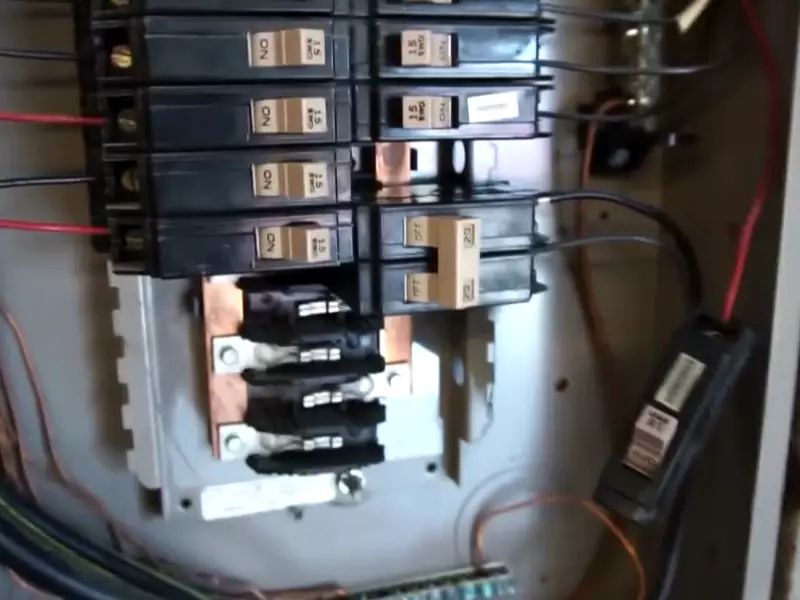
Preparing For Electric Car Charger Installation
Installing a charger for your electric car is an exciting step towards greener, more sustainable transportation. However, before you start the installation process, it is important to adequately prepare for this project. This includes conducting a thorough site assessment, evaluating your electrical panel capacity, assessing wiring and grounding requirements, ensuring adequate space for installation, obtaining the necessary permits, understanding local regulations and electrical codes, and hiring a licensed electrician for compliance.
Conducting a Site Assessment
Before proceeding with the installation of an electric car charger, it is essential to assess your property to determine the most suitable location. During the site assessment, you should evaluate factors such as proximity to your electric car’s parking spot, the distance from your electrical panel, and accessibility for future maintenance. Additionally, consider whether your charger installation may impact any existing structures or landscaping.
Electrical Panel Capacity Evaluation
Your electrical panel’s capacity plays a critical role in the safe and efficient operation of your electric car charger. To assess whether your panel can accommodate the additional load, consult a licensed electrician. The electrician will evaluate your panel’s amperage, taking into account your existing electrical appliances and circuits, to ensure adequate capacity for the new charger.
Assessing Wiring and Grounding Requirements
Proper wiring and grounding are essential for the safe and reliable operation of your electric car charger. During the assessment, the electrician will inspect your existing wiring system to determine whether any upgrades or modifications are necessary. This may include installing new circuits, upgrading wiring gauge, or improving grounding to meet the specific requirements of the charger’s manufacturer and local electrical codes.
Ensuring Adequate Space for Installation
Electric car chargers come in different sizes and configurations. It is crucial to ensure that you have adequate space available to accommodate the charger and any associated equipment, such as conduit, meters, or disconnect switches. Consider factors like clearance requirements, ease of access for installation and maintenance, and any limitations imposed by your property layout or local regulations.
Obtaining Permits and Meeting Code Requirements
Before starting the installation process, it is essential to obtain the necessary permits and adhere to local regulations. Research the code requirements specific to your area and ensure compliance with electrical safety standards. These permits and code requirements exist to protect your safety and the integrity of the electrical system in your home.
Researching Local Regulations and Permitting Process
Each jurisdiction may have unique regulations and permitting processes when it comes to electric car charger installation. Research the specific requirements for your area before proceeding. Contact your local government or building department to gather information on the necessary permits, fees, and any additional documentation required for the installation.
Understanding Electrical Codes and Safety Standards
When installing an electric car charger, ensure compliance with electrical codes and safety standards to guarantee a safe and reliable charging experience. Familiarize yourself with the relevant codes, such as the National Electrical Code (NEC), and consult with a qualified electrician to ensure your installation meets these standards.
Hiring a Licensed Electrician for Compliance
Installing an electric car charger should always be done by a licensed electrician. A qualified professional has the knowledge and experience to assess your electrical system, recommend any necessary upgrades, and ensure compliance with local regulations. Hiring a licensed electrician not only guarantees the safety of your installation but also helps you avoid any potential code violations.
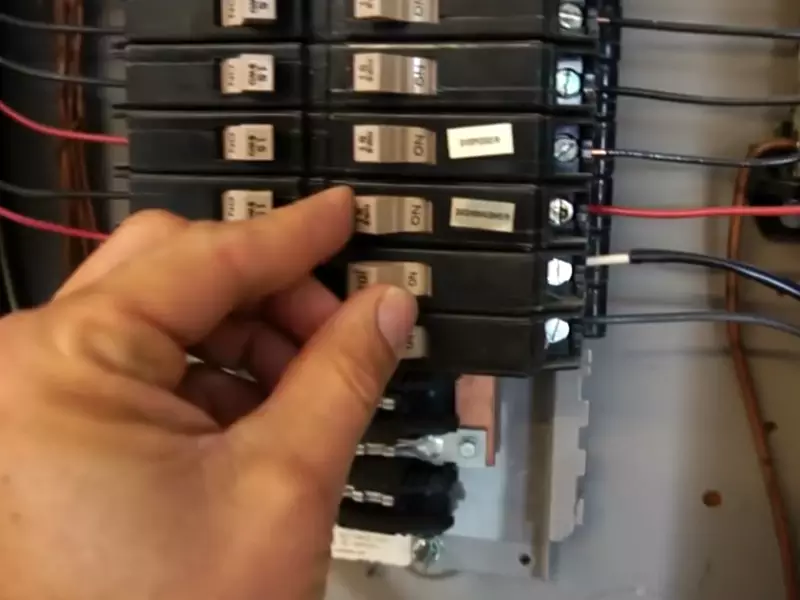
Installing The Electric Car Charger
Installing an electric car charger is a critical step towards transitioning to a more sustainable and eco-friendly mode of transportation. While it may seem like a daunting task, with the right information and guidance, the process can be smooth and hassle-free. In this article, we will walk you through the process of installing an electric car charger, from hiring a professional electrician to ensuring proper grounding and safety measures. Let’s dive in and get your charging station up and running!
Hiring a Professional Electrician
When it comes to installing an electric car charger, hiring a professional electrician is of utmost importance. These experts have the technical knowledge and experience to ensure that your charging station is installed correctly and meets all safety standards. Moreover, working with a professional can save you time and give you peace of mind knowing that the job is being handled by an expert.
Researching and Selecting a Qualified Electrician
To ensure a successful installation, it is crucial to research and select a qualified electrician who specializes in car charger installations. Start by asking for recommendations from friends, family, or neighbors who have already installed electric car chargers. In addition, consider checking online directories or using search engines to find local electricians with experience in this field.
Obtaining Multiple Quotes and Project Estimates
To make an informed decision, it is recommended to obtain multiple quotes and project estimates from different electricians. This will give you a better understanding of the costs involved and help you compare the services offered by various professionals. When requesting quotes, be sure to provide as much detail about your specific charging station requirements as possible to get accurate estimates.
Checking Licenses, Insurance, and Client Reviews
Before finalizing your electrician, it is essential to check their licenses and insurance to ensure they are qualified to perform the installation. You can typically verify this information by contacting the relevant licensing board or checking online databases. Additionally, taking the time to read client reviews or testimonials can provide insights into the electrician’s reputation and the quality of their work.
Charger Installation Process
Once you have selected a qualified electrician, the actual installation process can begin. This typically involves several steps, including mounting and wiring the charging station, testing and verifying electrical connections, and ensuring proper grounding and safety measures. Let’s explore each of these steps in detail.
Mounting and Wiring the Charging Station
The first step of the installation process is to mount the charging station in the desired location. The electrician will assess the area to ensure it meets all necessary requirements, such as adequate space and access to electrical power. Once the location is determined, the charging station will be securely mounted to the wall or a freestanding structure. The electrician will then proceed to wire the charging station to your electrical panel, ensuring proper connections are made.
Testing and Verification of Electrical Connections
After the charging station is mounted and wired, the electrician will conduct thorough testing and verification of all electrical connections. This step is crucial to ensure that the charger is receiving the correct voltage and that there are no wiring issues that could pose a safety risk. The electrician will utilize specialized equipment to test the charger and make any necessary adjustments or repairs.
Ensuring Proper Grounding and Safety Measures
To ensure the safety of both your vehicle and your home, the electrician will take measures to ensure proper grounding of the charging station. Grounding is essential to protect against electrical faults and to provide a safe pathway for electrical currents. The electrician will follow all applicable safety codes and regulations to guarantee that the charging station is installed correctly and poses no hazards.
In conclusion, when installing an electric car charger, hiring a professional electrician is crucial for a successful and safe installation. By researching and selecting a qualified electrician, obtaining multiple quotes, and ensuring proper licenses and insurance, you can make an informed decision. The installation process involves mounting and wiring the charging station, testing electrical connections, and ensuring proper grounding and safety measures. With the help of a professional, you will soon be charging your electric car conveniently and efficiently.
Testing And Commissioning The Electric Car Charger
Once the installation of your electric car charger is complete, it’s crucial to thoroughly test and commission the system to ensure its functionality and operation. This process involves performing initial testing, troubleshooting any issues that arise, verifying the charger’s functionality and operation, and resolving any potential issues that may affect its performance. Additionally, fine-tuning the charger settings, conducting a final inspection, and obtaining approval from local authorities are essential steps in the overall process. Let’s delve into each of these steps in detail:
Performing Initial Testing and Troubleshooting
The first step in testing and commissioning the electric car charger is to conduct initial testing and troubleshoot any potential issues. This involves checking the electrical connections, verifying that all components are properly installed, and ensuring the charger is receiving power correctly. If any issues or abnormalities are detected during this initial testing phase, they should be promptly addressed and resolved before proceeding further.
Verifying Charger Functionality and Operation
After the initial testing is completed, it’s time to verify the functionality and operation of the electric car charger. This step includes testing the charger’s capacity to deliver power to the vehicle, checking its compatibility with different car models, and ensuring proper communication between the charger and the vehicle’s onboard charging system. The goal here is to ensure that the charger is operating as intended and is capable of charging an electric car efficiently and safely.
Identifying and Resolving Potential Issues
During the verification process, it’s vital to identify and resolve any potential issues that may arise. This can include troubleshooting errors or malfunctions, addressing charging interruptions, and resolving any compatibility issues that may prevent successful charging. By promptly identifying and addressing these issues, you can ensure that the electric car charger will function reliably for a seamless charging experience.
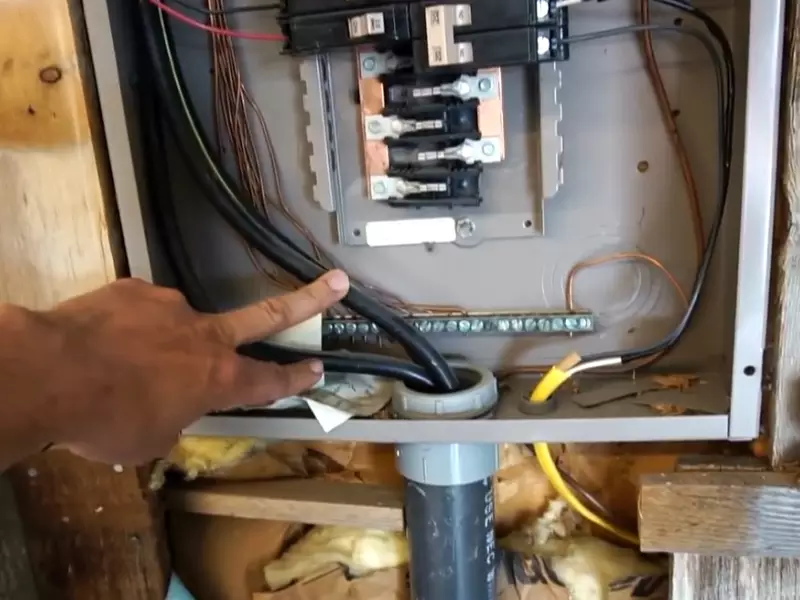
Fine-Tuning Charger Settings for Optimal Performance
Once the charger functionality and operation are verified, it’s time to fine-tune its settings for optimal performance. This involves adjusting parameters such as charging voltage, current levels, and charging duration to optimize the charging process and ensure maximum efficiency. Fine-tuning these settings can also help extend the lifespan of the charger and reduce any potential strain on the electrical system.
Conducting Final Inspection and Approval
After completing the necessary adjustments and fine-tuning, a final inspection of the electric car charger is conducted. This inspection involves checking all the electrical connections, verifying compliance with local electrical codes and regulations, and ensuring that the installation meets safety standards. Once the charger passes this final inspection, it can be considered ready for operation pending final approval.
Coordinating with Local Authorities and Inspectors
Coordinating with local authorities and inspectors is a crucial step in the testing and commissioning process. This involves scheduling inspections, submitting any required documentation or permits, and ensuring compliance with local regulations. It’s essential to work closely with inspectors to address any concerns they may have and to ensure a smooth and successful inspection process.
Addressing any Necessary Modifications or Corrections
If any modifications or corrections are requested by local authorities or inspectors during the inspection process, it’s important to address them promptly. This can include making necessary adjustments to the installation, replacing faulty components, or providing additional documentation. By promptly addressing these modifications or corrections, you can ensure that the electric car charger meets all requirements and can be approved for operational use.
Obtaining Final Approval for Operational Use
Once all necessary modifications or corrections have been completed, a final approval from local authorities or inspectors is obtained. This approval signifies that the electric car charger has been tested, commissioned, and deemed safe for operational use. At this stage, you can proceed with confidently using your electric car charger, knowing that it has undergone thorough testing and meets all necessary requirements.
Maintenance And Ongoing Considerations
When it comes to installing a charger for your electric car, it is essential to consider the maintenance and ongoing considerations to ensure its efficiency and longevity. Regular upkeep will not only enhance the performance of your charging equipment but also contribute to a smoother and hassle-free charging experience. Let’s explore the various aspects of maintenance and ongoing considerations to optimize your charging system.
Ensuring Long-Term Charger Efficiency
To ensure the long-term efficiency of your electric car charger, it is vital to follow a few essential guidelines. Firstly, always refer to the manufacturer’s instructions and guidelines for optimal performance. It is essential to maintain the charger within its recommended temperature range to maximize efficiency. Regularly inspect the charger and its components for any signs of wear and tear, and promptly address any issues to avoid potential damage.
Regular Cleaning and Inspection of Charging Equipment
Regular cleaning and inspection of charging equipment is crucial to prevent any build-up of dust, dirt, or debris on the charger surface, connectors, or cables. Use a soft cloth or brush to gently clean the charging equipment, making sure to avoid abrasive substances that may cause damage. Inspect the connectors and cables for any signs of damage or fraying, ensuring that they are in proper working condition.
Monitoring Energy Consumption and Efficiency
To optimize your electric car charging experience, monitoring energy consumption and efficiency is essential. Keep track of your charging sessions to identify any irregularities or inefficiencies. Record the time, duration, and energy consumed during each charging session to analyze patterns and potentially identify any issues or areas for improvement. This data can also help you budget and plan your energy consumption effectively.
Updating Firmware and Software for Enhanced Performance
Regularly updating the firmware and software of your electric car charger is vital to enjoy enhanced performance and access to new features. Manufacturers often release updates that improve charging efficiency, provide better compatibility, and address any known issues. Check with the manufacturer’s website or contact their customer support to ensure you have the latest firmware and software updates installed.
Adapting to Future Electric Car Charging Technology
As electric car charging technology continues to evolve, it is important to stay adaptable and open to future advancements. Keep yourself informed about the latest developments in charging technology and standards. Being aware of emerging technologies, such as faster charging options or wireless charging, can help you plan for potential upgrades or modifications in the future.
Staying Informed about Evolving Charging Standards
Electric vehicle charging standards continue to evolve, with advancements in both hardware and software. Stay informed about any updates or changes in charging standards, as this knowledge can help you make informed decisions when it comes to purchasing new charging equipment or upgrading your existing system. Being well-versed in charging standards will ensure you remain compatible with the latest electric car models and charging infrastructure.
Upgrading Chargers for Compatibility and Efficiency
Periodically assessing the compatibility and efficiency of your electric car charger is a prudent maintenance step. As electric car technology advances, there may be a need to upgrade your charging equipment to accommodate new features or higher power output. Consider consulting with a professional to evaluate your current charger’s compatibility with newer electric car models and determine if an upgrade is necessary to optimize your charging experience.
Exploring Innovative Charging Solutions
To future-proof your electric car charging setup, it is worth exploring the latest innovative charging solutions. For instance, you may consider installing smart charging systems that allow for advanced monitoring, scheduling, and energy management. Investigating the benefits of solar-powered chargers or exploring other renewable energy sources can also contribute to a greener charging experience. Stay ahead of the curve by embracing these innovative charging solutions that promote sustainability and efficiency.
Frequently Asked Questions For How To Install Charger For Electric Car
Can I Install An Ev Charger Myself?
Yes, you can install an EV charger yourself. However, it’s important to ensure you have sufficient electrical knowledge and expertise. Hiring a professional electrician is recommended to guarantee a safe installation that adheres to local codes and regulations.
Can Anyone Install An Electric Car Charger?
Yes, anyone can install an electric car charger. It is a straightforward process that can be done by following the installation instructions provided.
How Much Is It To Put In A Charging Port For An Electric Car?
The cost of installing a charging port for an electric car varies, but it generally ranges from $500 to $2,500, depending on factors such as the type of charger and any additional electrical work required. The final price will depend on the specific installation needs and any additional features desired.
What Wiring Do I Need To Charge An Electric Car?
To charge an electric car, you need to have the appropriate wiring installed. This typically includes a dedicated circuit with a 240-volt outlet, such as the popular Level 2 charging station. It’s important to consult an electrician to ensure safe and efficient charging for your electric vehicle.
Conclusion
To conclude, installing a charger for your electric car is a straightforward process that can greatly enhance your driving experience. By carefully following the steps outlined in this guide, you can ensure a safe and efficient installation. Remember to consider your specific charging needs, consult professionals if necessary, and always prioritize safety.
With a reliable charger, you’ll be ready to hit the road with your electric car and contribute to a greener future.
